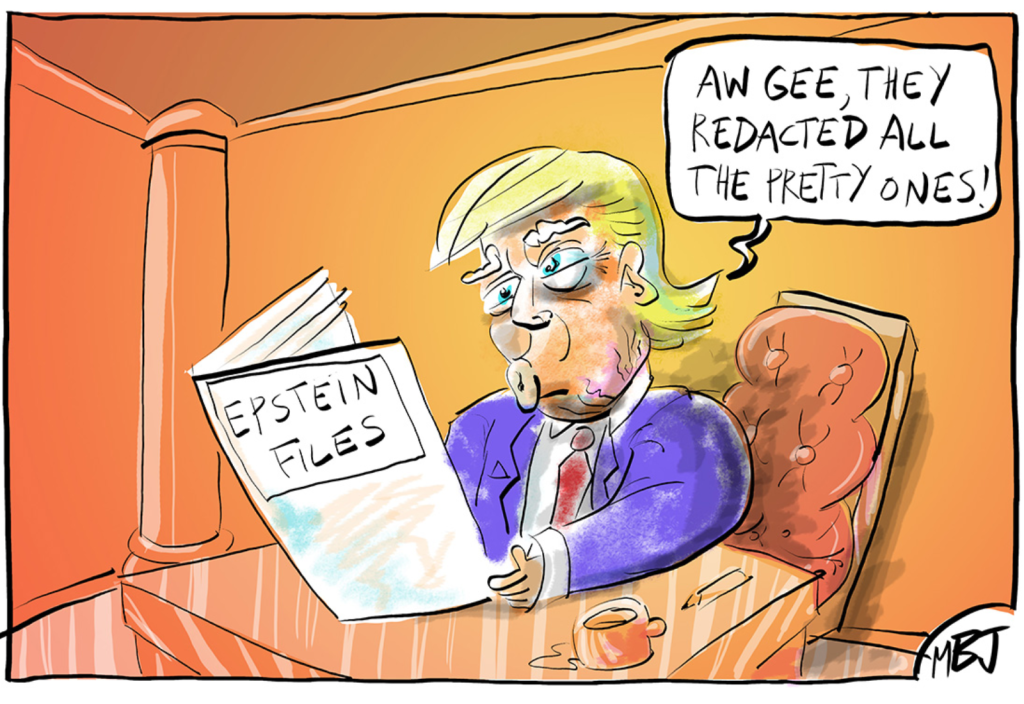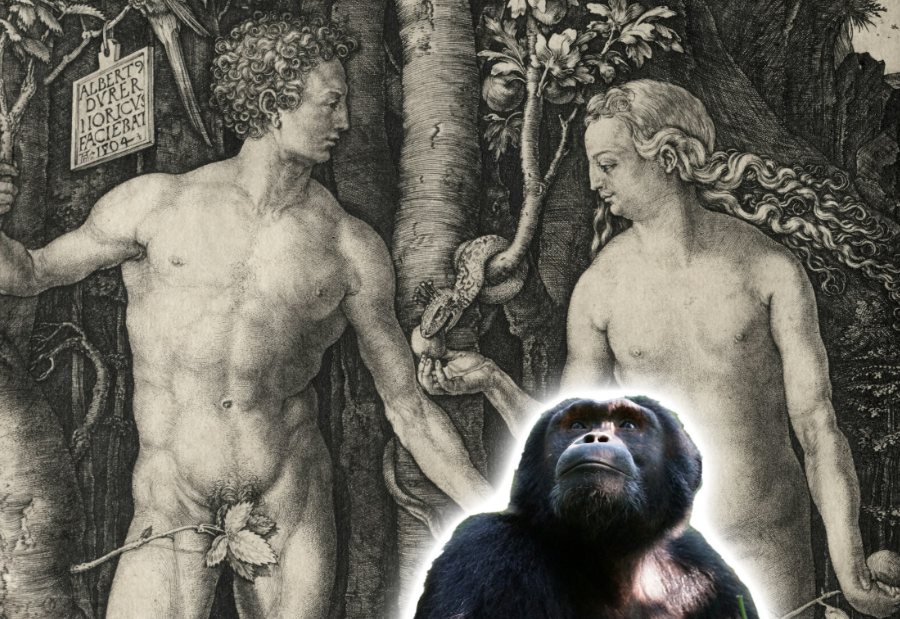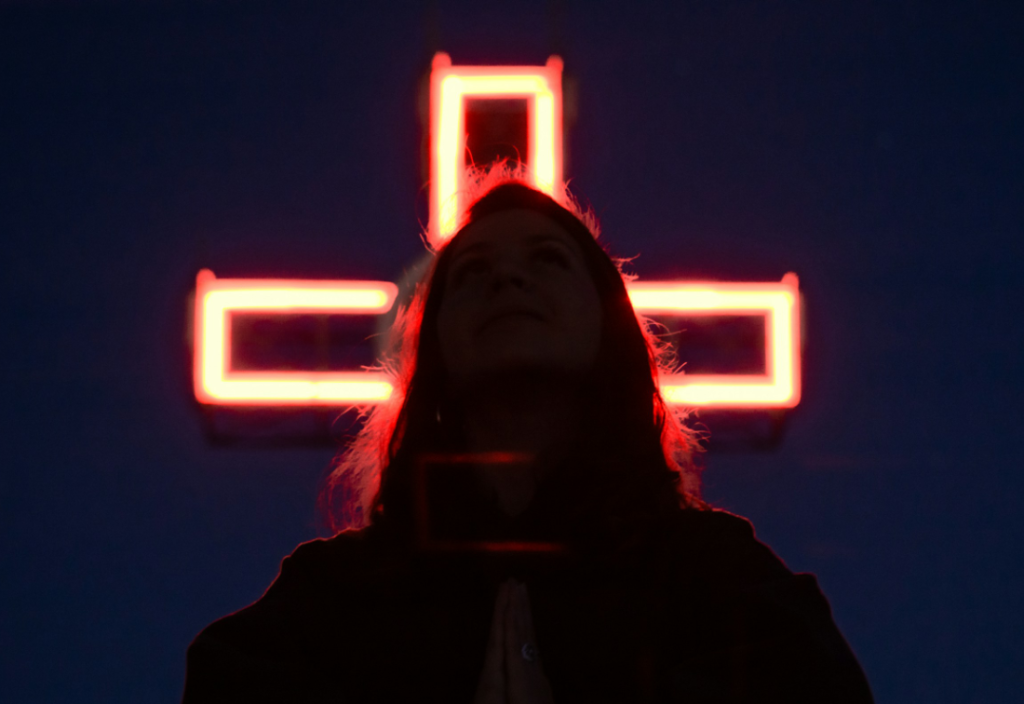This article is part of our ‘Timeless Pieces’ series of summer reading, featuring articles from our former hardcopy Australian Rationalist journal. The article was originally published in the Spring 2010 edition of the journal.
One of the most remarkable and persistent features of American life is that, alone amongst the economically advanced countries, its political life and civil society in general are overshadowed and greatly affected by the power and influence of religious groups.
This is not, of course, a new feature. From the days of its founding, some of the communities which grew up in North America were often ones which were marked out in many ways by a kind of theocratic government.
In addition, there was often a tendency for a kind of hiving-off into new communities in which new forms of Christian theology were created. In many places there were whole communities founded on religious ideas, as with the Amish people, in an attempt to create a kind of Utopia.
Many such groups were based on a literal acceptance of the ideas in the Bible, notably ideas derived from the Old Testament. In the nineteenth century, many new religious cults and communities were formed. There was the fantastic story of Brigham Young and his claim to have found a new book of the bible: the book of Mormon, on which the Mormon cult was based.
Others like the Jehovah’s Witnesses, the Seventh Day Adventists, the Christian Scientists (founded, rather unusually, by a woman) along with more exotic ones like The Shakers, were all the product of an imaginative rendering of the basic ideas of Christianity, and were always based on a literal acceptance of biblical texts.
One feature of such cults was the idea that the end of the world was approaching – indeed, had already been foretold in the Bible. That idea owed much to The Book of Revelations. Revelations so worried Martin Luther that, in his German Bible, Revelations was put in a section called ‘The Apochyphia’, as he doubted its biblical origins.
Luther may have been on to something here because, as the American experience has long shown, Revelations has been a bottomless pit from which all sorts of bizarre notions can be hauled up for scrutiny.
Today, this apocalyptic worldview, often referred to as the ‘end times’, is a powerful idea which has taken hold of great sections of US fundamental Christianity.
The past as prologue
It may be useful to look at the broad range of religious ideas which in the nineteenth century took root in the US and now exert a powerful influence over American society.
The process of cult formation still holds strong in our day, leading to the appearance of groups like Scientology (not a Christian offshoot), the Exclusive Brethren, and more recently Christian Zionism, all based on a literal acceptance of biblical texts and often on Old Testament sources. Here, obviously, is the reason many of them had curious similarities to ancient Hebrew practices and beliefs. Some like the Seventh Day Adventists adopted food practices as part of their cultish practices (many eschewed alcohol, coffee and tea as illicit stimulants, too) in a parallel to the Mosaic food laws.
In Australia in the early twentieth century, the first ‘health-food shops’ were owned by the Seventh Day Adventist Church, which produced the food stuffs sold therein under the Sanitarium brand, and they ran a sanitarium at Warburton outside Melbourne, probably the first place of its kind in Australia. In the USA, Kellogg copied many of their food ideas and ran the first ‘health farm’ called Wellville.
The elect membership and the secrecy of operations which is common to many occult groups can be seen currently in cults like the Exclusive Brethren and the Scientologists, who imitate the practices of earlier groups like the Knights Templar, the Rosicrucians and the Freemasons.
Some insisted that their members withdraw from contact with non-believers, and live in a closed community. This belief in a chosen elect also echoed the ancient Hebrew belief in themselves as God’s Chosen People. Others, like the modern day Jehovah’s Witnesses, believe only a certain number of the elect would be saved when the ‘end times’ came, echoing the numerology found in some Abrahamic cults (seeing 666 as the sign of the Devil).
One nineteenth-century group, the British Israelites, decided that the English were the descendants of a supposedly ‘lost’ tribe of ancient Israel, and for a while attained some prominence amongst nineteenth-century British biblical scholars. Until recently, they would insert obscure advertisements in British newspapers explaining their beliefs and the special role of the English people in God’s plans.
This idea was viewed rather favourable by some English readers, who found it echoed their own personal feelings when confronted with a host of foreigners. After all, the British novelist P G Woodhouse had one of his most loved characters warn that “the wogs begin at Calais”.
In the mid-nineteenth century, an obscure British clergyman called John Darby was dismayed at his failure to get much traction with some bizarre notions about ‘the end times’ and took his ideas to the US where he found a much warmer reception for a lunatic set of notions than he ever could in the UK. His group was called the Plymouth Brethren.
Like other British worthies, from Dickens to Sarah Ferguson, America provided a lucrative and receptive audience for all sorts of ideas, not all of them logical or attractive. The ideas of this obscure clergyman grew and flourished in a quite remarkable way. He was a prolific writer and debater, and a tireless missionary for his radical theology.
Founded on Darby’s readings of that much favoured work, The Book of Revelations, these ideas grew into a whole suite of notions which were to fall like fertile seeds into the larger field of American evangelism.
The ‘end times’ were coming (as they always are!) and at that time the elect would be raptured up’ to heaven, shedding their earthly garments along the way. Those left behind would have to endure the time of tribulations, which would end with Christ’s return to earth but not before some amazing things would happen in the Middle East. Recently, a series of novels by Tim LaHaye, dealing with the end times’ have sold over 60 million copies in the US.
Before the end times, the state of Israel would be re-established (as it was in 1948), the Jews would be converted to Christianity (those who didn’t would join the damned), and then the great battle of Armageddon in Palestine would see the forces of the Satanic Anti-Christ defeated and Christ would return to initiate a time of universal peace and love for believers. This theology represented a radical departure from that of the mainstream Christian churches.
These views on the rapture were shared in time by many Christian cults, as we have seen, and they became part of the disparate body of US Christian fundamentalism. US fundamentalism has always been a movement with room for many disparate groups, though almost always white and drawn from lower socio-economic groups, mostly rural people. They differed starkly from the established Protestant churches in the larger cities in the north-east coast from which so much church leadership was drawn.
There was much, too, which came from African-American churches. Fundamental Christianity had room for charismatic groups, with much vigorous singing and dancing. Hence the name ‘happy-clappy Christians’ that is sometimes given to them. Some had bizarre practices which might include talking in tongues, snake handling, and other strange activities.
On the fringes there was also always a place for the self-proclaimed ‘healers’ of which Oral Roberts in recent times would be a prime example. Many such healers have been exposed from time to time as fakes and hoaxes, but that never spoiled a good show for the faithful. Some of the best of these showmen (never women) made their way out to the wider world, and in that way Billy Graham became a noted figure and confidant of presidents.
The music of these groups, too, merged with the country and western music of their locality, and also gained a worldwide audience. One can see the flavour and appeal of such activities in groups like the Hillsong Church in Sydney.
This would be a great danger for the Republicans and an even greater danger for that ‘Great Republic’, founded in the late eighteenth century on the principles of the separation of church and state – a notion which the evangelicals openly rejected.
In one sense, that didn’t matter much at first outside the rural heartland of Middle America, where these evangelical cults had always thrived. The novelist Sinclair Lewis looks at one cultish preacher in his famous novel Elmer Gantry. Lewis, already a novelist famed in the 1920s for Main Street and Babbitt, created a preacher named Elmer Gantry who goes from strength to strength.
It is a scathing picture of one such preacher which outraged many believers, and there were calls for the banning of Lewis’s novel. The famed preacher Billy Sunday called Lewis “one of Satan’s cohorts”, but his novel created a powerful picture of a recognisable figure.
Lewis’s writing in the time of European fascism’s rise to power saw much that was fascist in such religious movements. It led him to make a most famous comment still apt today: “When fascism comes to the USA, it will be wrapped in the flag and carrying the cross.”
The battle against such men as Elmer Gantry was joined in real life in the famous Scopes Trial in the 1920s, when the first battle over Darwin’s Theory of Evolution was fought in the US courts. It was a victory for the fundamentalists, and seems to have given them an appetite for more.
On another front, the Temperance movement, widely supported by the fundamentalists, gained a great victory when they initiated Prohibition in 1920 in the USA, and then saw a decade of criminal activity linked to the sale of banned alcoholic drinks.
However, the zealots generally failed in their war against sin, as celebrated in the song ‘Chicago’ – “the town that Billy Sunday could not shut down”. Billy Sunday was one of the most fanatical and zealous of the fundamentalist preachers of an earlier time, but a tough and sinful town like Chicago eluded him.
In the main, however, the fundamentalist cults remained outside the political arena. They posed little threat to Roosevelt, Truman, Eisenhower or LBJ. They began to be politicised in the 1970s. It was, of all criminal politicians, Richard Nixon – no practising Christian himself – who brought them into the political equation in the 1972 election.
Nixon fought on the spurious issue of Middle American values, speaking of the “silent majority” which he raised up in opposition to the progressive movements which had campaigned against war, and for women’s rights, abortion and gay rights in a broad agenda of social change. These ideas frightened the US heartland.
During the 1972 campaign, Nixon actually turned up uninvited at a great Washington rally organised by Billy Graham – to great acclaim by Billy Graham’s devotees. And the die was cast! It was an election-winning stunt. Although Nixon wasn’t to survive long into his new term, the religious right was in the political arena and had begun to sense the possibilities that could flow from this event.
A host of evangelical leaders now emerged with a broad religious agenda, and began the invasion of the Republican party. By the 1990, one prominent Texas Republican could say: “The Republican party in Texas is not a political party but a religious cult.” This would be a great danger for the Republicans and an even greater danger for that ‘Great Republic’, founded in the late eighteenth century on the principles of the separation of church and state – a notion which the evangelicals openly rejected.
Who in an earlier time would have believed that in the twenty-first century the ideas of the eighteenth-century Enlightenment would come under attack in the USA, where they had first been enshrined in a Constitution?
The battle begins
In Nixon’s time, the first conflicts were about the need for prayers in public schools, clearly a challenge to the Constitutional prohibition of such acts. Though this was disallowed, it was the opening skirmish of a larger campaign which continues to this day.
The notion that the public school system is a godless place of depravity also saw the rise of the homeschool movement in which parents are urged to educate their children in their own home. This is a formidable task for even the most educated parent, but it now has the support of a whole publishing industry linked to various Christian churches.
When Reagan (himself no great church-goer) came to office in 1980, a great many cultists came into public on the coat-tails of the many Republicans who won office in his eight-year term, and that of Bush No. 1 who had a four-year term to follow Reagan. That 12-year Republican term in office entrenched many of the Christian conservatives in positions of power, and their zeal would further increase their control over much of the Republican machine at all levels, state and federal.
In much of the south and in the western states, their control became total, and this was reflected in the composition of state and federal legislatures, and the laws which flowed from this event.
The capture of power is always an exciting event for any party or group. Suddenly, for these far-right-wing Christians, the sky was the limit! By and large they rejected all notions of the welfare state and blended their ideas with the American distrust of the state. There was no place in their belief system for trade unions, a liberal education system or any of the forms of state assistance universal in western societies in the late twentieth century.
So they rejected the idea of a national health scheme of any kind, of state pensions, and saw unfettered capitalism as the sort of economic system they favoured. All this matched perfectly with the Republican Party view of the world in the age of Reagan and Bush. It was, one might say, a marriage made in heaven.
When matched to a world-view, it produced that ideological movement whic later became known as ‘neo-conservatism’, and the ‘neo-cons’ were to have power in Washington when George W Bush took power after the constitutional crisis following the disputed election of 2000.
The battle of ideas
The modern fundamentalist movement is a coalition of different groups. One of the largest and best organised groups are those known as the ‘Dominionists’, who hold to the idea that only good white Christian men should be allowed to have anything to do with the way the state is run. In their ideal state, no women would have any part in the running of the nation, and only the male Christian elite would be entitled to have a say in government or public life.
One of their numbers, the Reverend Adrian Rogers, a well-known Southern Baptist, became infamous for his statement on slavery some years ago. “I believe that slavery is a much-maligned institution,” he wrote. “If we had slavery today, we would not have all this welfare mess.”
Indeed Rogers, though an extremist, is not alone in his views. There is much nostalgia today amongst some for the past glories of the old south – the ‘Antebellum South’, as they call it. This at the time when a black President sits in the White House — it can’t be just coincidental!
Dominionists are committed to the idea of a theocratic state, which they hope will replace the democratic secular republic of the Founding Fathers, which the Dominionists reject. They see themselves as Christian crusaders who must conquer not just the USA but the world before Christ can return. Sometimes those who share this view are called reconstructionists, seeking to change society before the time of the rapture.
The Dominionists are not shy in expressing quite startling views. One of the most notable, Gary De Mar, a young man with a military background, has written widely on the need for a ‘new legal code’. There would be wide use of the death penalty against those who commit adultery or blasphemy, children who strike their parents, and homosexuals (though lesbians escape this fate as they are not mentioned in the Old Testament). He shows in his writings a preference for Old Testament punishments, favouring stoning to death, and this to be a community activity.
Another aspect of the movement has been the rapid growth of Christian Zionist groups. These have emerged in view of the special role Israel has in the lead up to the ‘end times’ and the return of Christ.
Christian Zionism is also marked by the shrill and angry tone adopted when they contemplate the Islamic world, and notably the Palestinian people. Islam is regarded as a satanic cult which must be confronted and destroyed. The Iraq War earned their commendation.
Billy Graham’s son, Franklin, has formed a group called the Samaritan’s Purse, which has tried to infiltrate the Islamic world in the guise of a charity, distributing food, aid and Bibles in Iraq. They view the Palestinians as a nuisance and an encumbrance to the final establishment of Israel existing within the ancient biblical boundaries of Israel, and they support the ‘ethnic cleansing’ of Palestine to remove all Palestinians from the scene.
There are close bonds between the Christian Zionists and the Israeli government, and together they sponsor ‘Salute to Israel’ functions far and wide in churches across the United States throughout the year. The admirers of Israel are many, and noted Christian broadcaster and commentator Pat Robertson says that God will punish any US politicians who fail to take care of Israel and see to its primacy and its needs.
Another Republican congressman, Tom Delay, said after visiting the Middle East: “I saw no occupied land; I saw only Israel.” And a former Republican leader in Congress, Richard Armey, advocated the transporting of millions of Palestinians to solve the problem. He didn’t offer any suggestions as to where they might be sent, or how this could be accomplished. It was a statement worthy of Milosevic or Himmler.
Plans are afoot to establish a ‘Christian colony’ on the West Bank to accommodate the many Christian Zionists who now make the pilgrimages to Israel under the sponsorship of the Israeli government. All this is great news for Israel, which is always in search of support in the USA. This unconditional support from the Christian Right often ignores what is in the US interest and assumes that what matters is the needs of Israel – needs which must be served at all times, as they, after all, represent the will of God. Thus, we see a US foreign policy founded on the Christian Zionist theology.
Republican activist and congressman Ed McAteer said it all: “I believe without reservation that every grain of sand (in Palestine) belongs to the Jewish people, because God gave it to them.” All of this has little to do, however, with what has been the mainstream of Christian thought in the West.
In recent days, in a US stricken by a major economic crisis, many fundamentalist groups have linked forces with the right-wing Tea Party movement. They regard the Obama administration as godless and wicked. In the main, they hope for the return of a Republican administration even closer to their point of view than was George Bush, even though Bush gave fundamentalists easy access to the White House.
Armed with massive funding, a network of TV and radio stations, publishing houses and a small army of paid operatives, their political power is now considerable. They threaten the very secular foundations of the American Republic.
Recently, the Texas Curriculum Board fell into their control. They have made it clear that the public school curriculum would be radically altered in regards to the teaching of history. Out will go references to Founding Fathers like Jefferson and Franklin, who established the secular republic. In will go information about the ‘old south’ and ‘creation science’, and much else. Textbook publishers will have to take note of these changes, too.
In her remarkable novel The Handmaid’s Tale, Margaret Attwood gives a bleak view of a strange dystopian future society in which a fundamentalist Christian elite rule, in a harsh and stricken society in rural America after the collapse of the US. It’s a forbidding place ruled by a dark theocracy.
Time alone will tell if this is the fate of the USA – a society, as Lewis said, where fascism will come wrapped in the flag and carrying the cross.
Photo by Agê Barros on Unsplash.














